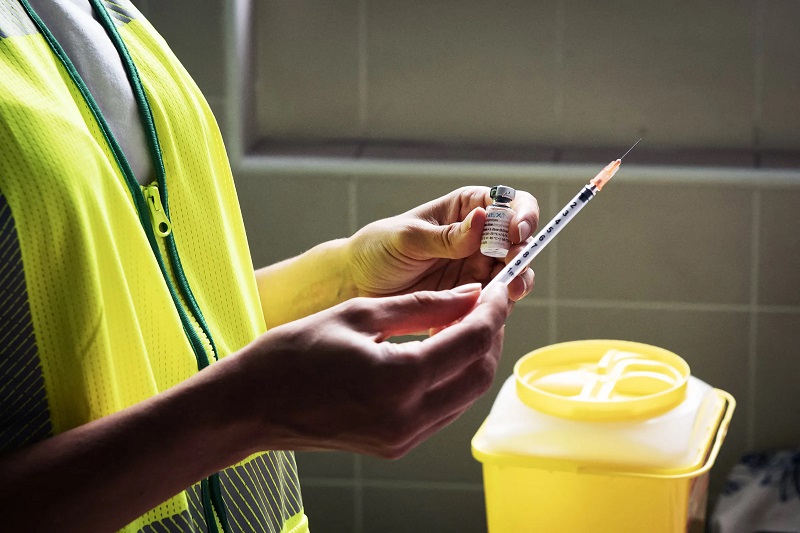Although extremely advanced conversations are being held with at least two partners, according to Africa’s public health ministry, the continent of 1.3 billion people still lacks even a single dosage of the monkeypox vaccine.
Ahmed Ogwell, the acting director of the Africa Centers for Disease Control and Prevention, told the media on Thursday that he could not provide specifics but noted that the partners are primarily international organizations and countries from outside of Africa.
According to him, all of the available dosages have already been purchased by countries, thus there are no conversations with the private sector.
This year, more deaths from monkeypox have been documented in Africa than anywhere else in the globe. Nearly 90 nations have reported more than 31,000 cases since May.
At least 2,947 cases of monkeypox, including 104 deaths, have been reported in 11 African countries this year; however, the majority of these cases are suspect ones because the continent of Africa also lacks sufficient diagnostic resources for in-depth testing, according to the director of the Africa CDC.
The 54 countries of Africa endured difficulties for months during the COVID-19 epidemic as wealthier nations abroad scrambled to get supplies. The scarcity of vaccination doses and the absence of diagnostics are echoes of those difficulties.
Related Posts
While visiting three countries in Africa, U.S. Secretary of State Antony Blinken, who spoke at the same time as the Africa director, laid out Washington’s new approach to interacting with sub-Saharan African countries as equal partners. The majority of the 136 new cases of monkeypox that have been recorded in Africa over the past week are found in Congo, where Blinken visited earlier this week.
In July, the World Health Organization proclaimed the growing epidemic of the hitherto uncommon monkeypox illness to be a worldwide emergency; last week, the United States made the same declaration.
98% of occurrences outside of Africa involve guys who have intercourse with other men. Since there is a finite amount of immunizations available worldwide, officials are rushing to eradicate monkeypox before it spreads widely.
Skin-to-skin or skin-to-mouth contact with lesions on an infected patient is often necessary for the spread of monkeypox. Additionally, exposure to bedding or clothing that has lesions from the monkeypox might spread the disease.
The majority of those who have monkeypox recover without medical intervention, although it can occasionally result in more serious symptoms including brain inflammation and even death. When compared to the monkeypox circulating in Africa, where most cases of illness result from contacts with infected wild animals like mice and squirrels, the type of monkeypox spreading in Europe and North America has a lower death rate.

